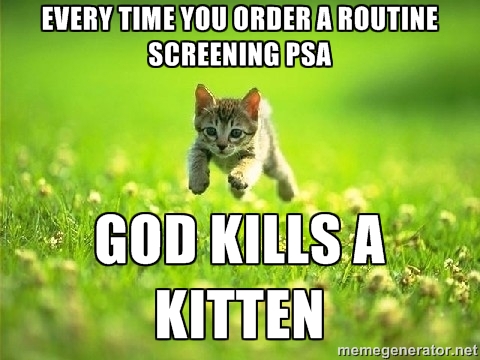If you can justify your screening methods based on current guidelines / recommendations (sometimes trumped by your medical group's algorithms etc), then you should be covered.
For prostate CA screenings, I personally use the AUA recommendations (
http://www.auanet.org/education/guidelines/prostate-cancer-detection.cfm)
1) I do not routinely screen age less than 50 unless they have symptoms, a family history of prostate CA, and/or wish to start screening early after discussing the risks / benefits
2) From age 50 - 70 I usually will do a DRE q2 years. I will do the DRE more often if any acute change in symptoms or if pt wishes. Some patients wish to move the DRE to q3 years if yearly PSA testing is normal.
3) From age 50 - 70 I will discuss the risks benefits of PSA testing. I find that:
- almost all men with a family history and/or symptoms of BPH want to have the PSA testing done.
- almost all men who have been having PSA testing done for the last 5-10 years wish to continue with the screening
- very few men who have not been tested in the past, have no family history, and are asymptomatic wish to have the PSA testing done.


 Asking a patient to get on all 4's, unless they're trying to precipitously deliver a baby in fetal distress, is not going to happen.
Asking a patient to get on all 4's, unless they're trying to precipitously deliver a baby in fetal distress, is not going to happen.